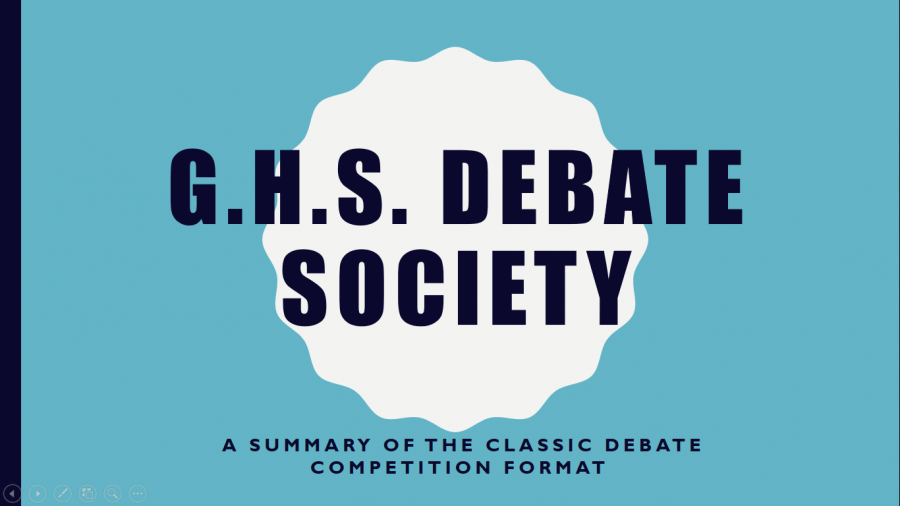The Debate Society
March 15, 2018
Do you possess very strong opinions or an open mind? Do you like to watch people argue? Are you often disagreeable or conciliatory? Are you headed for a career in law or politics or ministry? If so, then the Gaffney High School Debate Society is just for you.
An organization of classic debate is a very popular idea. Indeed, almost every school has attempted to form a debate club, but the Gaffney High School Debate Society is the only debate club in Cherokee County. Administrators, teachers, and fellow pupils have voiced their support for such a self-evident project, a club that covers the whole standard curriculum and enthralls students in the current world. Debate clubs are popular because they refine and democratize class discussions and give an air of prestige to the same arguments that students hear everyday at the lunch table.
Not only is a debate club popular but also necessarily imperative. The pillars of debate are the virtues of society: scholarship, reason, and free speech. Scholarship is the demand for evidence. It holds no sacred cow, no gospel above refutation, nor any value as objective. Reason is logic and intuition. It is the flame to which scholars hold sources. Reason grounds contentions in objectivity. Free speech is the expression of ideas. It is the First Amendment right of Americans, but, beyond even that, it is the liberty to do what makes humans individuals.
Public speaking is the most prominent fear statistically — even worse than the fear of death. Students sit passively all day and fear not having the approval of their peers. They fear the immediate reaction of speech that is not present in other media: smiles, laughs, scowls, heckling, and even “amen”s. It is difficult to look strangers in the eye and proclaim something publicly with which they may disagree or that they may even find off-putting. Public speaking is an art form that improves with frequent practice and delivery. While talking to one’s self in the mirror is efficacious practice for delivery, it is nothing like standing in front of a real crowd with differing values and expressions in the heat of the moment.
Nevertheless, public speaking skills are essential. For this reason, colleges hold mock job interviews and business presentations, and high school classes include presentations as project requirements. Where these class activities fall short is the simulated absence of rapport between the speaker and audience. Students see the same peers everyday in their English classes, so when they give a presentation, it tends to be more personable and lax. Debaters must consider the general layman, the man-on-the-street whose persona is not easily predictable.
Debate takes many formats (parliamentary, Lincoln-Douglas, classic style, policy, etc.), but it should always be impartial to every subject. Participants must consider both sides and prepare to argue for each. This forces debaters to look at topic with an objective eye and sometimes to walk in another person’s shoes. The judges fulfill their roles by considering only the arguments on their own merits (addressing refutation, source, delivery, clarity, etc.) and the participant’s performance.
The Debate Society may appeal to the student who thinks critically and is eloquent and persuasive. The Debate Society is for anyone who needs to improve public speaking skills or anyone who is open to new ideas. Meetings are every Thursday in Mrs. Dadheech’s room in the downstairs English pod after school and every Tuesday morning before school in Mr. Gregory’s room in the downstairs S.S. pod. Debates will be planned several weeks in advance and announced over the intercom. Debates will take place after school in the evenings.


